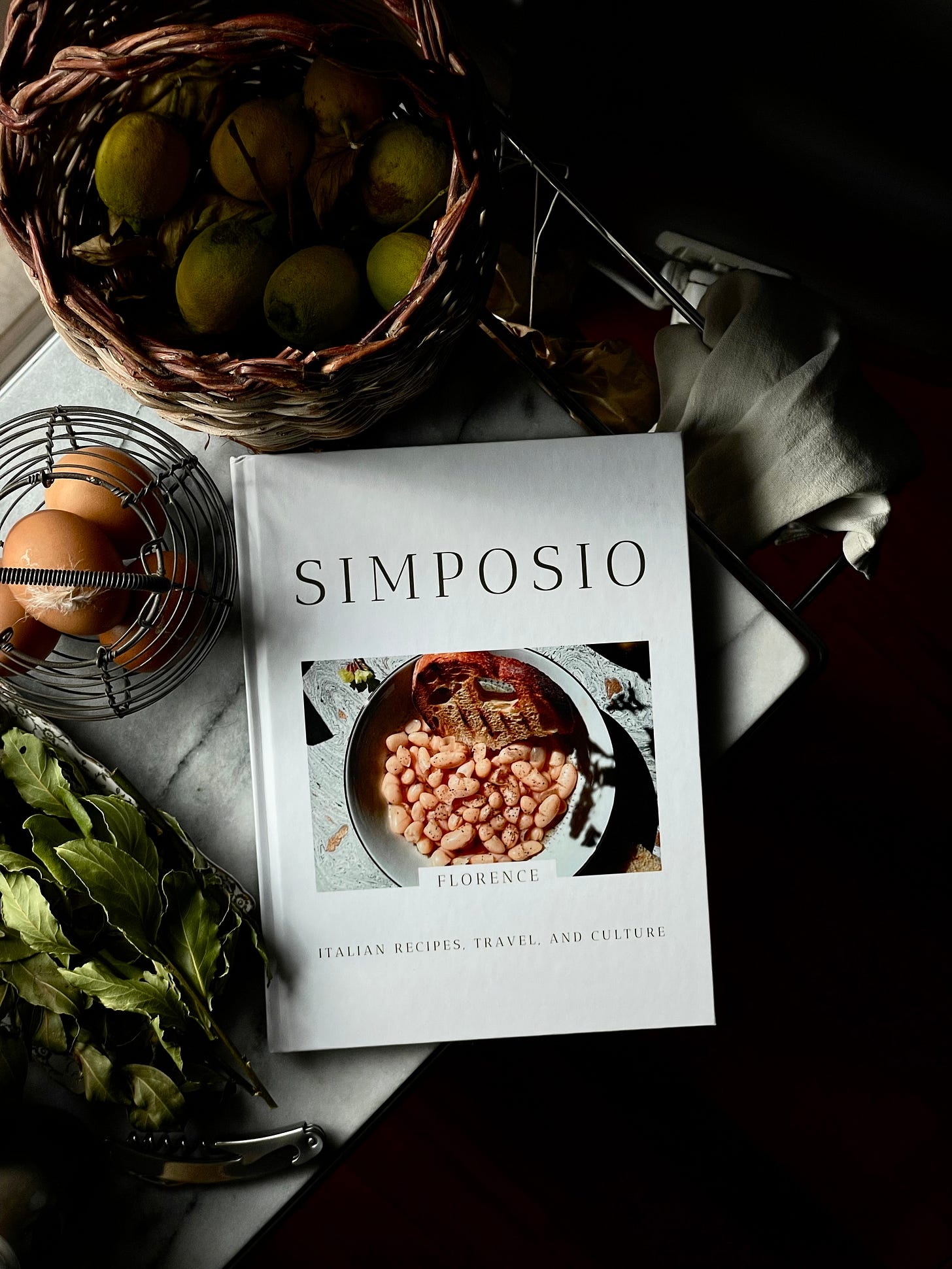The New Renaissance & Pomodori Alla Fiesolana
Let's be reborn worthy Renaissance men and women! And cook something fresh and delicious!
From Florence’s Simposio!
Renaissance, what a beautiful word. It derives from the Italian word "rinascere", be reborn. It illustrates what comes after the dark ages of ignorance, indifference, stillness, lukewarm feelings, and resignation.
Cyclicity is a lesson we must learn from Nature and history. Just like humankind has gone through phases, so do we in the arc of our existence.
Retreating ourselves after a traumatic experience is a way to survive. When stopping and nesting, we heal. But after putting to rest our emotions, our brain, and our socialization, we must find our way out.
After the Middle Ages, humankind was ready to confront a new adventure: exploring inner life. By abandoning the doctrine that placed men in a subordinate place, obliged to bend under the will of God, or Fate, and rediscovering the classical culture from Ancient Greece and Rome, Renaissance men could embrace what, in modern times, some would dare call psychology.
Humanism meant giving men center stage and responsibility for their existence. The Ancient Roman literate Appio Claudio Cieco's phrase "homo faber ipsius fortunae", man is the architect of his own fate, was elected as the manifest of the cultural environment of Florence.
A Renaissance man - or woman, at least in the greatly progressive Florence, that had, in the early 1300s, about six primary schools and four high schools opened to both genders - was, first of all, a scholar. An eclectic researcher of many subjects: idioms, philosophy, science, literature, and art. The intellectual famine pushed him beneath basic knowledge. Despite suffering and fatigue, he pursued learning before anything else. Getting to know the rules concealed in Nature, daring to confront the world of magic and intuition to discover if, beneath what was said and done, laid another find. No surprise that alchemy, astrology, and tarots were immensely popular.
The corporeal dimension wasn't left behind: strength and skill games captivated the young as well as the elderly. Clothes, perfumes, houses, gardens, food, music, and dancing were mundane pleasures not to be ashamed of anymore. They represented the way to illumination. Beauty, in all its forms, led toward spiritual ascension. Writing and decanting a poem, composing a melody, painting, and sculpturing were an expression of the divinity waiting inside to be released and assume its prophesized form.
A gathering of acculturated men would only be considered valuable with dialectic and exchanging opinions. Thanks to the rising bourgeois, competing had lost its sinful connotation and gained praise as society's development fuel.
Feelings, even the most shameful, were liberated and even celebrated. Love was central. Friendship was indispensable. Crimes and sacrifices were tolerated when backed by passion.
According to Pico Della Mirandola, nobleman and philosopher, a great friend of Lorenzo il Magnifico,
"... a man's place in the universe is somewhere between the beasts and the angels, but because of the divine image planted in him, there are no limits to what he can accomplish...." (On the Dignity of Man). Reach heaven like an angel, dig the ground like a beast. Contrasts were, finally, admitted.
Here in Italy and many other parts of the world, we are facing a New Renaissance. I am convinced beyond all doubt. But of course, it all depends on where you look and what you take into consideration.
Refer a friend and get one or more months free!
Keep reading with a 7-day free trial
Subscribe to Simposio: Italian Recipes & Stories to keep reading this post and get 7 days of free access to the full post archives.




